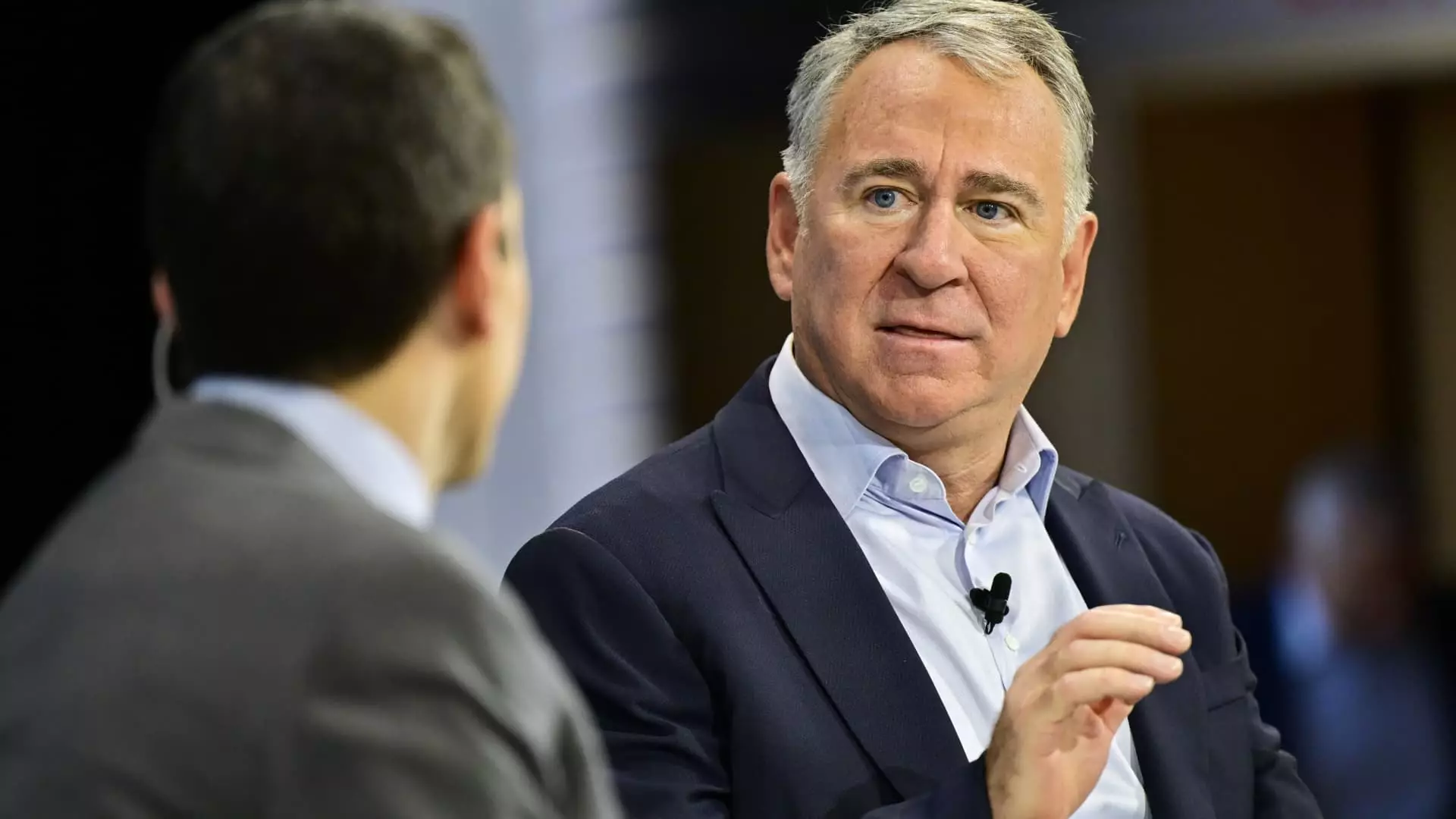In a world often characterized by financial unpredictability, Ken Griffin’s Citadel displayed resilience through its Wellington fund, managing a modest gain of 1.4% in January. This figure, albeit not monumental, emphasizes a continuation of positive performance following an impressive 15.1% increase last year. For investors and analysts alike, this outcome mitigates fears of volatility triggering significant losses amidst a tumultuous market. It reflects a calculated and well-diversified approach, as all five strategies—commodities, equities, fixed income, credit, and quantitative methodologies—contributed positively during January.
Notably, Citadel’s tactical trading and equities fund each posted a robust 2.7% gain. This data indicates that even amid shifting market conditions, skilled management can yield dividends for an investment firm of Citadel’s stature. With a reported $65 billion in assets under management at the onset of the year, the firm’s ability to navigate these fluctuations speaks volumes about its strategic insight and operational agility.
January’s market environment was fraught with volatility, heavily influenced by external factors, including heightened uncertainties around political developments and shifting trade policies spearheaded by the new administration. Such twists create fertile ground for speculation, leading to significant price swings across various sectors. The apprehension surrounding President Donald Trump’s protectionist trade policies triggered investor caution, reflecting broader concerns over potential long-term consequences for domestic markets.
Additionally, the sudden emergence of an AI competitor, DeepSeek, from China exacerbated market anxiety. This company’s impact on notable tech stocks, particularly Nvidia, illustrated how quickly market sentiment can shift and how emerging technologies are reshaping investment landscapes. The overall performance of the S&P 500 during the month, which saw a 2.7% climb, is indicative of the underlying resilience in the U.S. equity market, particularly following the strong performances in 2023 and 2024.
Griffin’s critical perspective on the proposed tariffs reflects a larger conversation regarding protectionism and its potential impact on corporate America’s long-term sustainability. While short-term gains may appear enticing to domestic companies receiving a reprieve from foreign competitors, Griffin warns this could lead to detrimental long-term effects. His views resonate with a growing body of economic thought advocating for free trade as a driver of innovation and productivity.
In critiquing the administration’s policies, Griffin’s insights are particularly salient for investors keeping a close eye on the broader economic ramifications of legislative decisions, suggesting a nuanced understanding of the balance between short-term benefits and long-term economic health is necessary.
As Citadel embarks on navigating the complexities of an evolving market landscape, its strategy to capitalize on diverse investment avenues continues to yield favorable outcomes, positioning it well against the backdrop of uncertainty. The firm’s performance throughout January provides a glimpse into how adeptly managed hedge funds can maneuver through challenging terrains while capitalizing on emerging opportunities.

